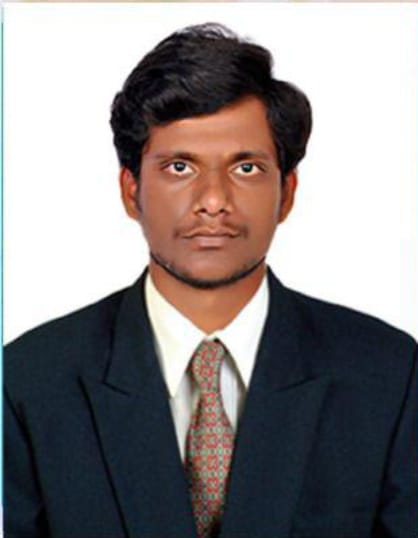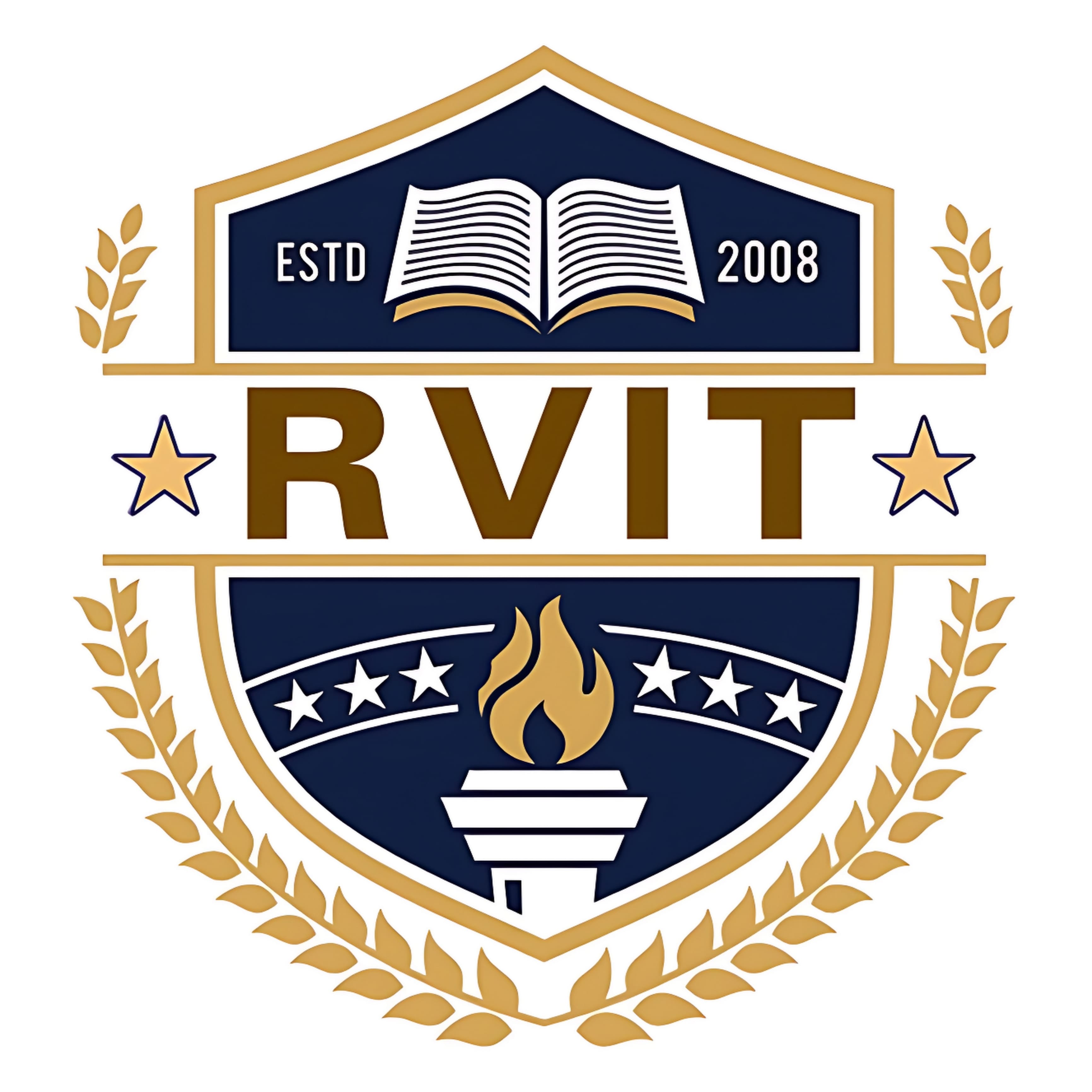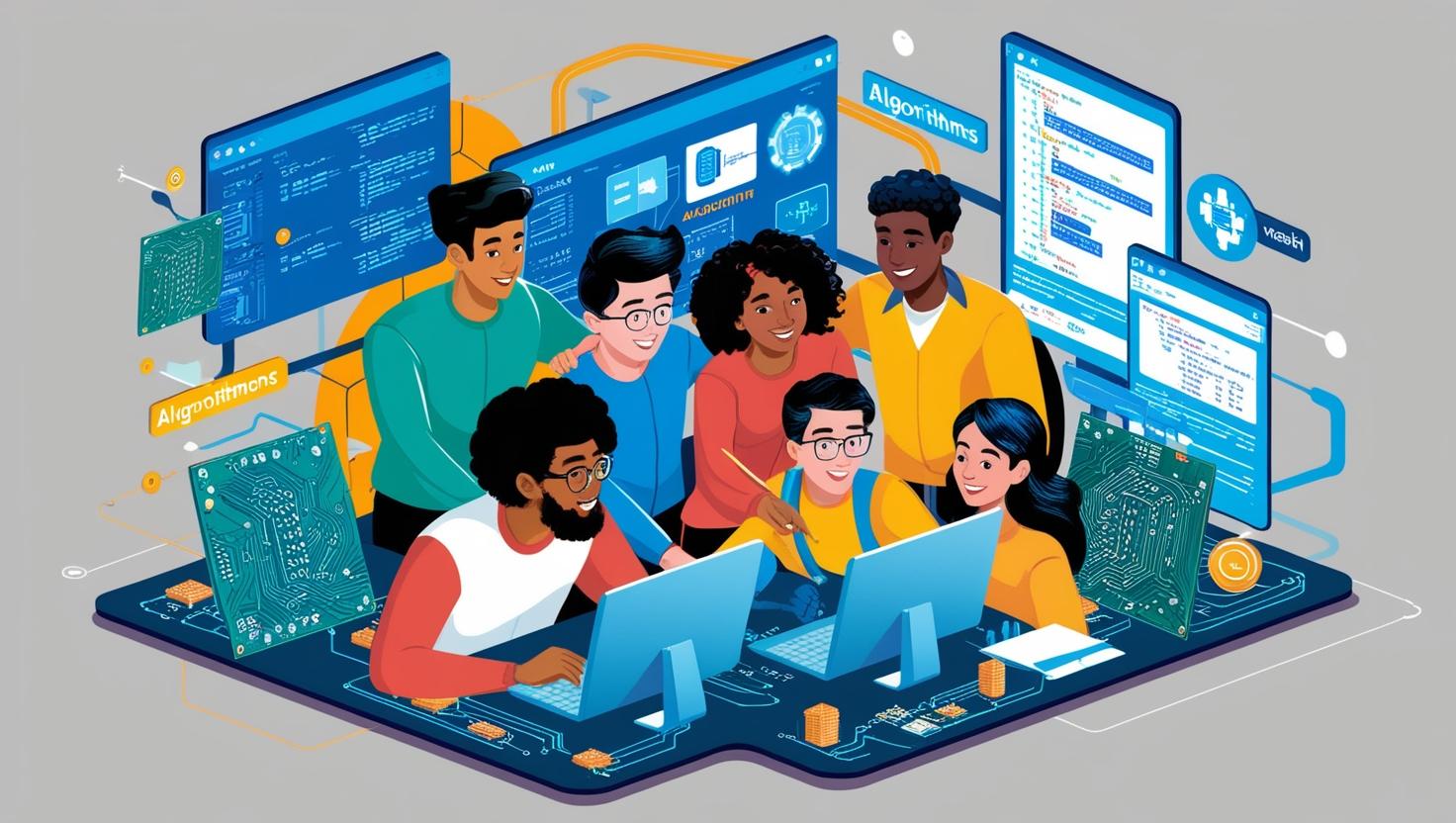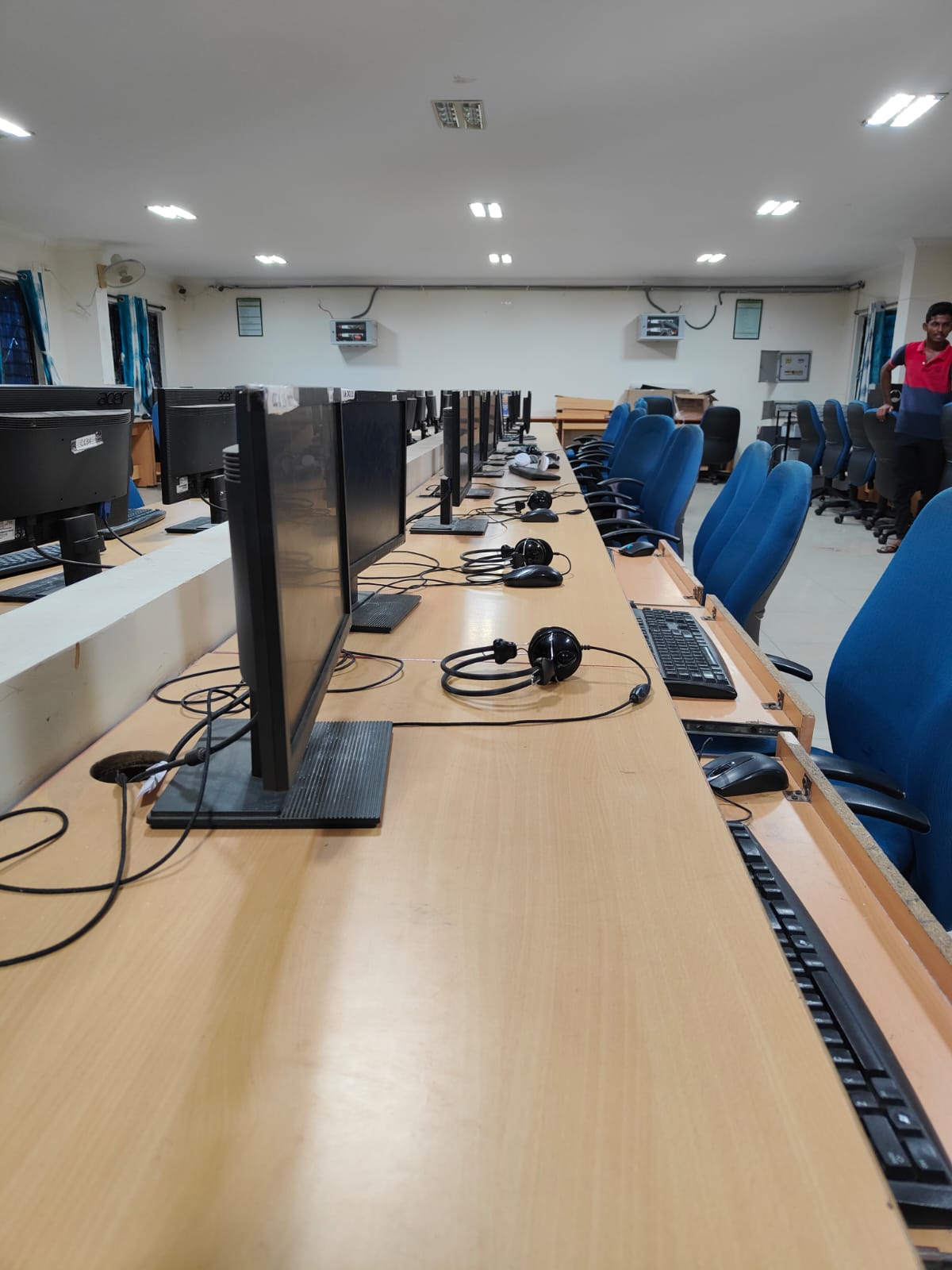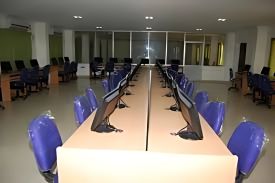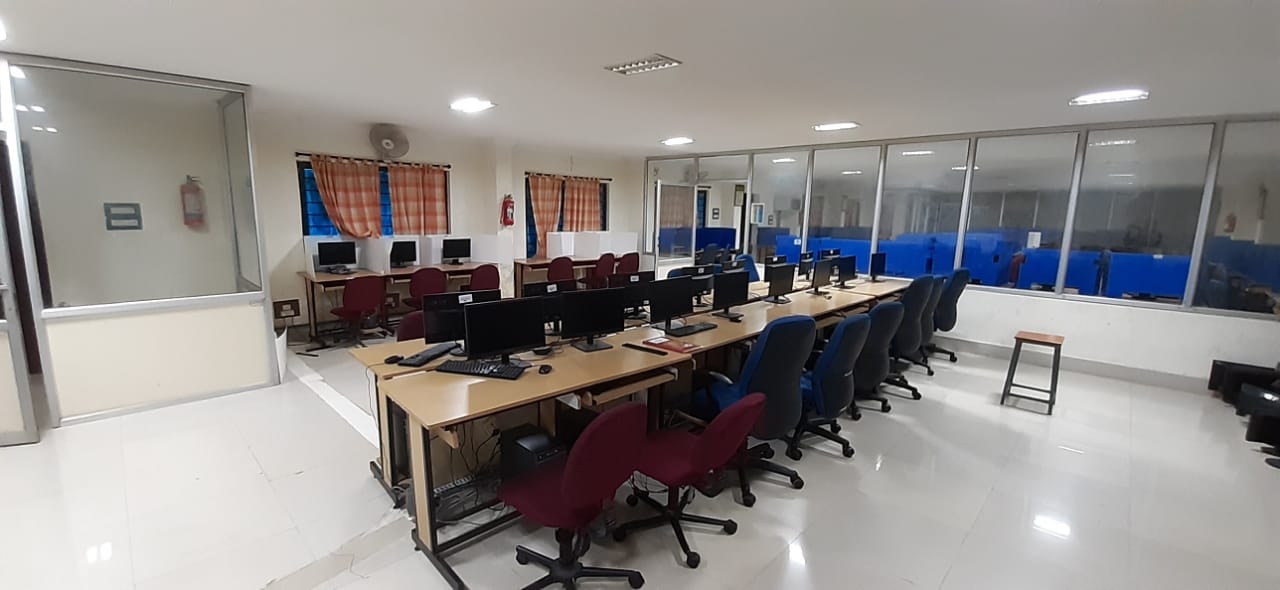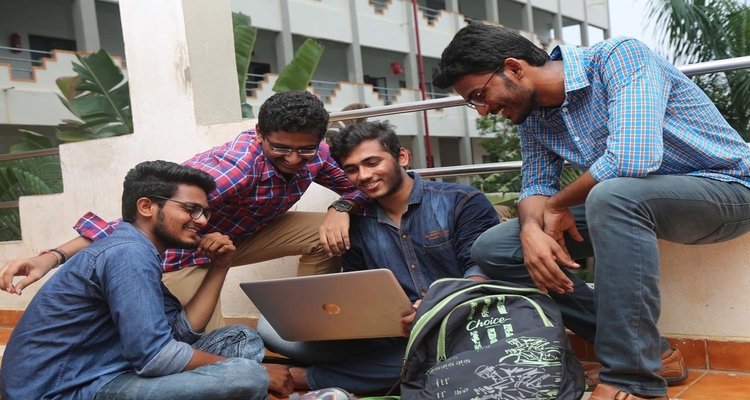Current Intake
The financial services and IT services and automation of industry will use the Computer Science concepts. The controlling programs architected and developed by Computer Science Engineering experts. It also gives great opportunities for research and development, as everyday consumer need new features to support them in daily life.
The department of Computer Science and Engineering was established in 2008 with an annual intake of 60 and improved to the current intake of 360 in B.Tech and annual intake of 18 in M.Tech.
Department History
B.Tech (CSE)
- Started with 60 seats in 2008
- Increased to 120 in 2019
- Increased to 180 in 2022
- Increased to 360 in 2024
M.Tech (CSE)
- Started with 18 seats in 2012
Infrastructure
Modern computer labs, Digital library, and Research laboratories.
Academic Support
Expert faculty, Industry workshops, and Regular seminars.
Career Development
Placement training, Industry internships, and Soft skills development.
Vision
To produce ingenious and socially responsible technologists and scientists in the area of Computer Science and Engineering.
Mission
-
M1
To train and transform youth into responsible technologists and scientists in the area of Computer Science and Engineering.
-
M2
To motivate them for attaining professional excellence.
-
M3
To inspire them to engage themselves proactively for the betterment of society.
Program Educational Objectives
- PEO 1: Persuasion of a successful career in the field of Computer Science & Engineering can contribute both to his personal growth as an excellent professional employee and an entrepreneur.
- PEO 2: Upgrading to the latest developments in the field of Computer Science & Engineering will enhance their knowledge and promote themselves to further innovations.
- PEO 3: Computer Science & Engineering students can easily assimilate themselves to work effectively in multiple domains and promote themselves as leaders of the communities.
Program Outcomes
Program Specific Outcomes
Apply the Knowledge of Programming Languages, Networks and Databases for development of Software Applications.
- PSO 1: Identify, Analyse, Formulate and Solve Real Time Complex Engineering Problems.
- PSO 2: Design, Implement and Deploy a Quality Based Software System to meet the Evolving needs.
| S.No. | Name | Highest Qualification | Designation | Experience |
|---|---|---|---|---|
| 1 | Dr. J Narendra Babu | M. Tech and PhD | Professor | 20 Years |
| 2 | Dr. B Bhavani | M. Tech and PhD | Professor | 13 Years |
| 3 | Dr. Vunnava Dinesh Babu | M. Tech and PhD | Associate Professor & HOD | 10 Years |
| 4 | Dr. G Bharathi | M. Tech and PhD | Associate Professor | 14 Years |
| 5 | Dr. Kurapati Srinivasa Rao | M. Tech and PhD | Associate Professor | 15 Years |
| 6 | Dr. Rajesh Kumar Verma | M. Tech and PhD | Associate Professor | 20 Years |
| 7 | Dr. Farheen Mohammad | MS and PhD | Associate Professor | 8 Years |
| 8 | Ms. Anusha Bondili | M.Tech | Assistant Professor | 9 Years |
| 9 | Mr. S. Jagadeesh | M.Tech | Assistant Professor | 14 Years |
| 10 | Mr. Vuyyuru Chaitanya Kumar | M.Tech | Assistant Professor | 7 Years |
| 11 | Mrs. Reddy Sravanthi | M.Tech | Assistant Professor | 7 Years |
| 12 | Mr. T.T. Rajeswar Rao | M.Tech | Assistant Professor | 12 Years |
| 13 | Mr. N. Naresh | M.Tech | Assistant Professor | 6 Years |
| 14 | Mr. K Venkata Sumanth | M.Tech | Assistant Professor | 6 Years |
| 15 | Ms. Mendu Anusha | M.Tech | Assistant Professor | 8 Years |
| 16 | Mrs. P. Shanti Priya | M.Tech | Assistant Professor | 5 Years |
| 17 | Mr. Gogineni Sreekanth | M.Tech | Assistant Professor | 7 Years |
| 18 | Mrs. L. Yuvana | M.Tech | Assistant Professor | 10 Years |
| 19 | Mr. Dulla Sridhar | M.Tech | Assistant Professor | 12 Years |
| 20 | Mr. Mani Kumar Songa | M.Tech | Assistant Professor | 6 Years |
| 21 | Mrs. Uggam Sukanya | M.Tech | Assistant Professor | 5 Years |
| 22 | Mrs. Salini Lingineni | M.Tech | Assistant Professor | 5 Years |
| 23 | Mrs. Sk. Shakeela | M.Tech | Assistant Professor | 5 Years |
| 24 | Mr. N. Vijay Gopal | M.Tech | Assistant Professor | 10 Years |
| 25 | Ms. G. Jayasree | M.Tech | Assistant Professor | 4 Years |
| 26 | Mr. Shaik Irfan Basha | M.Tech | Assistant Professor | 2 Years |
| 27 | Mr. Moulali Noorubhash | M.Tech | Assistant Professor | 10 Years |
| 28 | Mr. Ramesh Babu Karri | M.Tech | Assistant Professor | 10 Years |
The department adopts various innovative methodologies to improve the teaching-learning process.
| S.No | Practices | Goals | Outcomes |
|---|---|---|---|
| 1 | Project-based Learning | To apply and implement theoretical knowledge for carrying projects. | Communication through teamwork, personality development and lifelong learning. |
| 2 | Hands-on Training on Programming | To apply programming skills while learning theoretical concepts. | Modern tool usage, lifelong learning. |
| 3 | Workshops | Self-learning | Lifelong learning, modern tool usage. |
| 4 | PowerPoint Presentations along with Blackboard | To enhance the overall comprehension of students and allows teachers to present their lessons more effectively. | Multimedia support, better retention, interactive teaching. |
| 5 | Unit Tests after Every Module | To test understanding of concepts, broaden knowledge, build confidence. | Fair evaluation, classify weak/strong students. |
| 6 | One-to-One Internal Viva in Labs | To understand student learning, groom for technical interviews and external exams. | Improves confidence, technical knowledge, and performance. |
| 7 | Student Seminars | Motivate students for self-study and group study. | Enhances communication, presentation, and time management skills. |
| 8 | Contents Beyond Syllabus | Bridge gap between syllabus & recent trends; correlate with curriculum. | Encourages innovation and focus on technological trends. |
| 9 | Mini and Major Technical Projects | Expand technical understanding via software/hardware solutions for real-world problems. | Practical testing of theoretical concepts, enhances insight. |
| 10 | Weekly Tests | To test understanding of weekly concepts. | Identify learning gaps for improvement. |
| 11 | Industry Collaborated Laboratory | Bridge academic-industry gap. | Train students and staff to meet industry needs. |
| 12 | Additional Classes on "Junior Software Developer" Role | Train students for industry requirements. | 74 students certified by NSDC. |
Computing Facilities
- 590 computers with latest versions of software and hardware
- 1000 Mbps Internet facility through college LAN
- Advanced software tools for technical development
- 24/7 Power backup facility
Student Support
- Expert lectures and guest lectures
- Industrial visits and training programs
- Student counseling system & Ideathons
- Paid internships from 4th semester
Laboratories
B.Tech Labs
- Computer Programming Lab
- Database Management Systems Lab
- Java Programming Lab
- Data Structures Lab
- Operating Systems Lab
- Compiler Design Lab
- Linux Programming Lab
- Data Warehousing & Mining Lab
- Web Technologies Lab
M.Tech Labs
- Advanced Data Structures & Algorithms Lab
- Web Services Lab
Professional Bodies
| S.No | Name | Designation | Role |
|---|---|---|---|
| 1 | Dr. Vunnava Dinesh Babu | HOD-CSE | Chairman |
| 2 | Dr. J Narendra Babu | Professor | Member |
| 3 | Dr. B Bhavani | Professor | Member |
| 4 | Dr. G Bharathi | Assoc. Professor | Member |
| 5 | Dr. K Srinivasa Rao | Assoc. Professor | Member |
| 6 | Dr. R K Verma | Assoc. Professor | Member |
| S.No | Name | Designation | Role |
|---|---|---|---|
| 1 | Dr. Vunnava Dinesh Babu | HOD-CSE | Chairman |
| 2 | Mr. V Chaitanya Kumar | Asst. Professor | Coordinator |
| 3 | Dr. J Narendra Babu | Professor | Member |
| 4 | Dr. B Bhavani | Professor | Member |
| 5 | Dr. G Bharathi | Assoc. Professor | Member |
| 6 | Dr. K Srinivasa Rao | Assoc. Professor | Member |
| 7 | Dr. R K Verma | Assoc. Professor | Member |
| S.No | Name | Designation | Role |
|---|---|---|---|
| 1 | Dr. Vunnava Dinesh Babu | HOD-CSE | Chairman |
| 2 | Dr. J Narendra Babu | Professor | Member |
| 3 | Dr. B Bhavani | Professor | Member |
| 4 | Mr. S Jagadeesh | Asst. Professor | Member |
| S.No | Name | Designation | Role |
|---|---|---|---|
| 1 | Dr. Vunnava Dinesh Babu | HOD-CSE | Convener |
| 2 | Dr. J Narendra Babu | Professor | Member |
| 3 | Dr. B Bhavani | Professor | Member |
| 4 | Dr. G Bharathi | Assoc. Professor | Member |
| 5 | Dr. K Srinivasa Rao | Assoc. Professor | Member |
| 6 | Dr. R K Verma | Assoc. Professor | Member |
| 7 | Dr. Farheen Mohammad | Assoc. Professor | Member |
| 8 | Mr. V Chaitanya Kumar | Asst. Professor | Member |
150+
₹2.5 Cr+
6+
Recent Publications
"Accurate classification of forest fires in aerial images using ensemble model"
- Vunnava Dinesh Babu, Bulletin of EE & Informatics, 2024"Three-stage multi-objective feature selection with distributed ensemble machine and deep learning"
- Vunnava Dinesh Babu, Measurement: Sensors, 2023"Large dataset partitioning using ensemble partition-based clustering"
- Vunnava Dinesh Babu, Indonesian Journal of EECS, 2023"Leveraging CNN and LSTM for Identifying Citrus Leaf Disorders"
- ICACRS 2023 Proceedings"An Automated Epilepsy Seizure Detection System (AESD) Using Deep Learning Models"
- ICSSAS 2023 Proceedings"Dynamic Deep Learning Algorithm (DDLA) for Processing of Complex and Large Datasets"
- ICAIS 2022"A Hybrid Multimodal Biometric Recognition System based on Fusion of Iris, Face, and Finger Vein Traits"
- ICOSEC 2024Patents
-
Subspace ML for Terrestrial NavigationNo. 202441088942 (Filed 2024)
-
Automatic Pallet Changer in WarehouseNo. 202141042804 (Filed 2021)
-
IoT Based Smart Plant MonitoringNo. 202241073517 (Filed 2022)
-
Intelligent Healthcare MonitoringNo. 2023456789 (Granted 2023)
Major Funded Projects
Automated Polling Station
Aadhar controlled automated polling station with remote monitoring (2022-23).
Rural Development Awareness
Awareness Camp for STEMM for Students and Teachers of Rural Area (2023-24).
